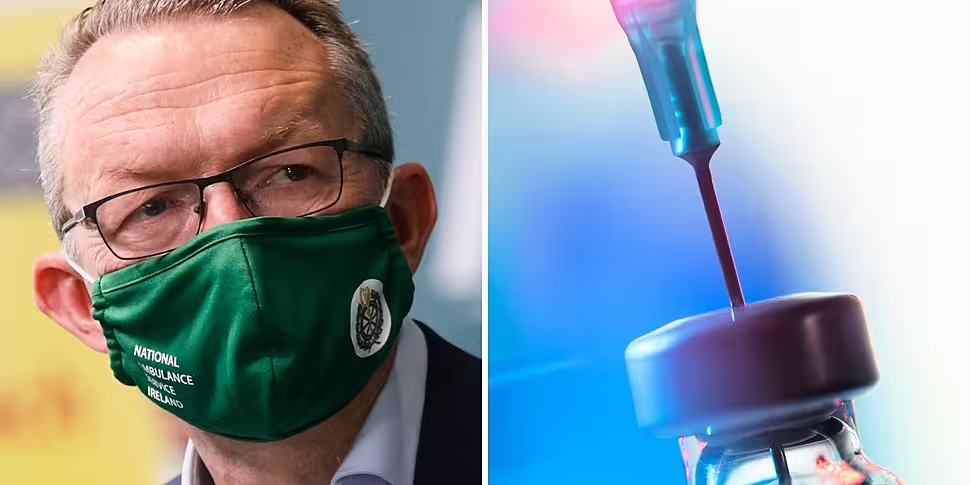Half of the patients currently in hospital due to COVID have not had their vaccine booster, the Chief Clinical Officer has told Newstalk Breakfast.
There are more than 1,600 patients in hospital who have tested positive for the virus and over 50 in intensive care.
Meanwhile, more than 10,000 people around the country are still testing positive every day through PCR and antigen tests.
The Health Minister Stephen Donnelly has warned that the true figure is likely higher – with hundreds of thousands of people picking up the virus each week.
"Huge disruption"
On Newstalk Breakfast this morning, HSE Chief Clinical Officer Dr Colm Henry said there is now immense pressure on the healthcare system.
“Certainly, these numbers we are seeing are causing huge disruption,” he said.
“Many of our frontline staff are reporting a level of disruption they have never seen and that is because so many of the wards are given over to COVID patients
“That requires specific infection prevention and control measures and our ability to discharge patients out to other settings is greatly hampered.
“So, we are seeing a level of disruption we have never seen before.
Boosters
Fortunately, because of the vaccine programme and the booster programme the level of harm at an individual level is greatly reduced for those who are vaccinated and boosted – but the level of harm for those who are not vaccinated or boosted remain significantly high.”
Around half of the 1,624 patients in hospital who have tested positive for the virus are ‘incidental cases’ who were admitted for other reasons.
It means just over 800 were admitted because of their COVID symptoms – and Dr Henry said half of those have still not received their booster.
Protection
He said there are three main ways people can reduce pressure on the hospital system – stay home and isolate when you are sick, get your full round of vaccines and wear a mask on public transport and in confined spaces.
“There is a danger that, after February 28th, there was a feeling that the pandemic had gone away and that the risk had gone away and that the virus was no longer there – but it is quite clear that this variant is out there,” he said.
“It is more transmissible than anything we have ever seen. It is much more transmissible than flu, it is much more transmissible than any previous variant of COVID-19.
“Unfortunately, because of the different mutations arising from this particular variant, even if you have been infected before, you can catch it again.
“We are seeing people who were infected last year with the Delta variant getting reinfected with the BA.2 variant and that means them getting sicker again.
“The one ray of hope I would offer to those people is, if you have been vaccinated and boosted, the likelihood of you getting severe illness is greatly reduced.”
Surge
Dr Henry said it “very difficult to say” when the current will end.
“We expect this, certainly, to continue to rise over the next few weeks and we will see that ongoing sustained pressure on our health system,” he said
“In line with previous surges, it is unlikely to fall abruptly. It will plateau and fall gradually so I expect to see a significant lag effect on our system even after it peaks and cases begin to fall.”









